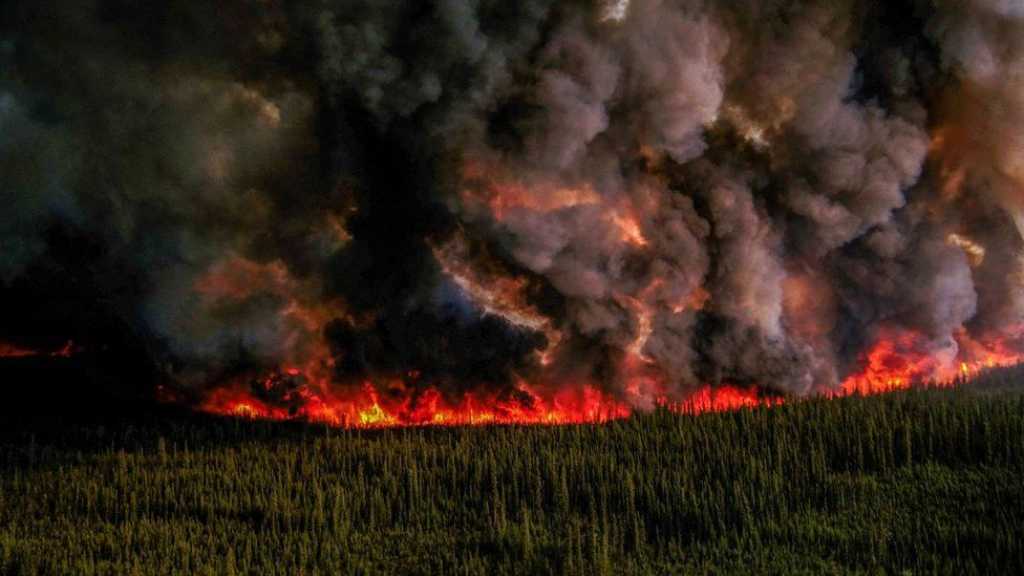North American Cities Top Global Pollution Rankings

By Staff, Agencies
Toronto and New York stood in first and second place on a list of the world’s most polluted urban areas compiled by IQAir on Friday. With wildfires burning in Canada, a choking smog has spread to major American metropolitan areas.
More than 500 fires have been burning across several Canadian provinces for almost a month, spreading an orange-brown haze across eastern Canada and the US Midwest and Northeast.
The heavy concentration of particulate matter in the smoke has led public health officials to hand out masks and instruct people to remain indoors. As of Friday, more than 120 million Americans – a third of the population – were living under some kind of air quality alert, CNN reported.
By Friday morning, Toronto had the worst air quality of any city in the world, according to a live index compiled by IQAir, a Swiss air filter company. Toronto scored 154 on the company’s index, making its air “unhealthy” for anyone to breathe. New York City and Washington DC followed in second and third place with respective scores of 142 and 120.
Montreal, Chicago, and Detroit are also in the top ten on IQAir’s list, alongside cities more commonly associated with air pollution, such as Beijing, Hanoi, and Kolkata. Earlier this week, Chicago and Detroit alternated between first and second place, until prevailing winds pushed some of the smoke east from Thursday afternoon onwards.
Residents of the Canadian province of Ontario and the Ohio River Valley – which includes areas of New York, Pennsylvania, Ohio, Indiana, Kentucky, West Virginia, and Tennessee – have reported smelling burning plastic in the air. According to the Weather Network, this phenomenon occurs when smoke has lingered in the air for so long that the sun’s radiation begins to break it down to release toxic benzene and formaldehyde.
Canadian Prime Minister Justin Trudeau has described the 2023 wildfire season as “unprecedented,” and the worst since records began. While wildfire season usually peaks in mid-July, more emissions have already been released this year than any other year on record, according to a report published on Tuesday by Copernicus, the European Union’s Earth observation program.
Trudeau has blamed the fires on climate change, while his critics argue that poor forest management and a refusal by the authorities to engage in controlled burns are the true causes of the disastrous blazes.
Comments
- Related News




